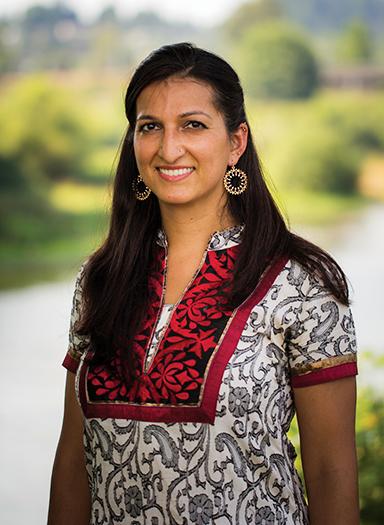
Meena Makhijani is an Oscar-Winning Doctor to Hollywood, from stars to extras. She works on the Wasserman Campus, an idyllic retirement community in Woodland Hills, created solely for the entertainment industry.
Indian doctors are everywhere but you wouldn’t have expected one to be right on the glittering stage of the 2021 Academy Awards! Dr. Meena Makhijani, a Sindhi by origin, was in the elite group receiving the Jean Herscholt Humanitarian Oscar. In 2021 the winner of this prestigious award was the Motion Picture and Television Fund (MPTF) where Makhijani is physician and the Chief of Staff. Yes, she actually held the iconic Oscar in her hand and recalls with delight: “It had heft!”
As she says, “This was the first time that an organization has won that award – it is usually given to an individual. So it was quite an honor for our organization – over the past 100 years it has just done so much for the community, helping people.”
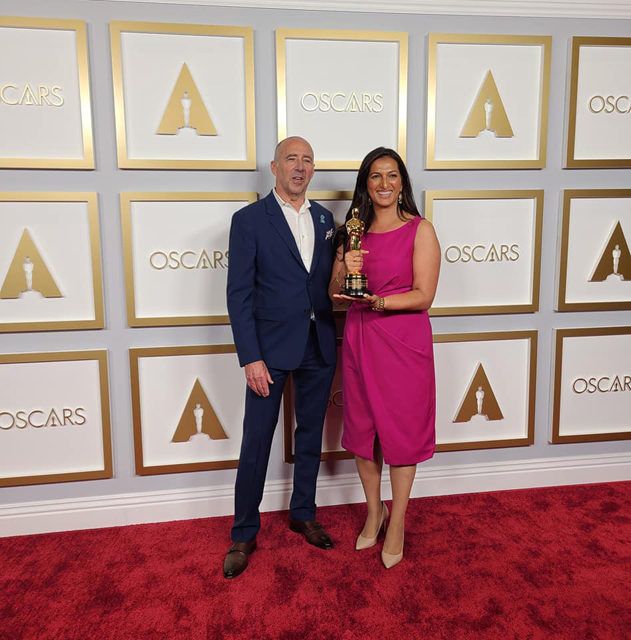
Makhijani, a California native, has been looking after the residents of the Motion Picture and Television Fund which is a much loved nonprofit that celebrated a century of service this year.
“It was founded by icons Charlie Chaplin and Mary Pickford, and other great legends of the motion picture business to help those in need in their community,” says Makhijani. “Its motto is ‘taking care of our own’ and that’s the part of the reason I wanted to work there. It’s such a beautiful concept, one we have lost in modern society. I really loved the idea that there is a place where they really look out for each other.”
Makhijani is employed by UCLA and since there is a partnership between UCLA and MPTF, she works on the Wasserman Campus, an idyllic retirement community in Woodland Hills, created solely for the entertainment industry. .
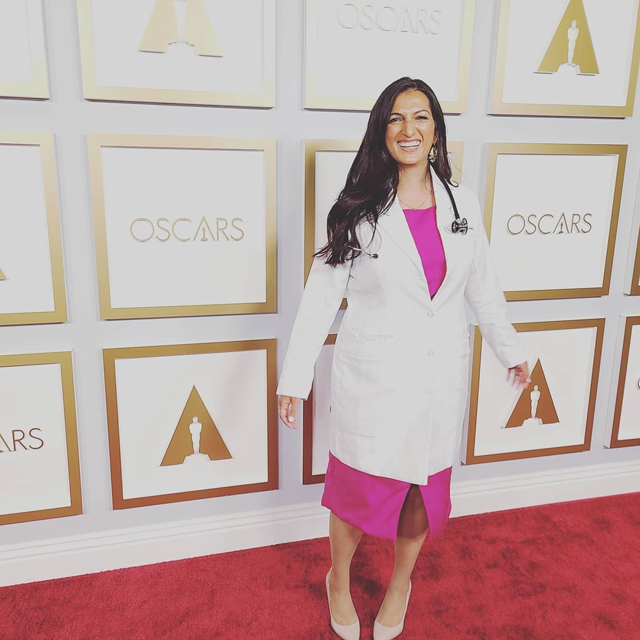
It’s a several acre campus, home to almost 300 older adults who have all retired from the film industry. So, whether they were actors or directors or writers as long as they had a number of years in the business, they are eligible to live there once they’ve retired. The home has all levels of care from independent living to assisted living to nursing home level care to even a dementia unit. Makhijani also heads a clinic on campus for residents and since she specializes in geriatric medicine, she can be their primary care physician or consult with their own doctors on issues like memory problems, falls or movement disorders. (In fact, UCLA Health operates six MPTF health care centers in Los Angeles which are exclusive to entertainment industry members and located near studios and other industry locations.)
This campus is a retirement home for the famous as well as the unknown names who have worked in Hollywood. She says, “Some of them were famous while others were behind the scenes and nobody would know who they are but they all contributed in their own way to this business. They are all welcome here – they are part of the community,” she says.
The Wasserman Campus not only is a residence for older adults who need a place to live but also caters to industry professionals of all ages when they are between jobs or need rehab or financial assistance. “They have this program called the Daily Call where they set up volunteers to connect with these industry members that are feeling lonely or isolated and help them get through hard times. This started well before the pandemic and it’s been a real lifeline for so many people.”
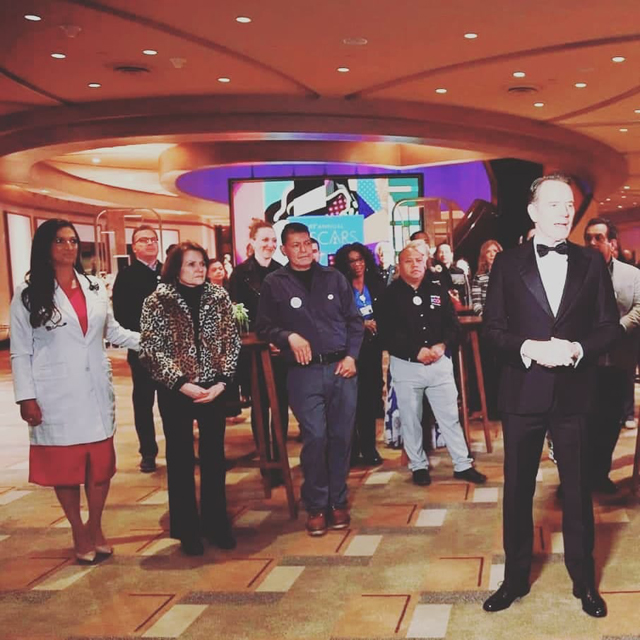
During the pandemic, a special COVID unit was set up where three doctors looked after the patients, and Makhijani herself contracted COVID while working there but helped the patients get through the pandemic. She was born and brought up in America but her parents are from India. She says, “I’m personally very connected to India. And the COVID crisis there has been heartbreaking for me.” She would have personally liked to go there and help but since that was not practical, she worked on raising over $18,000 by organizing a COVID kirtan fundraiser and donating to reliable organizations there.
Makhijani also consulted with COVID patients in India through the organization eGlobal Doctors with the goal of preserving the strained resources there, advising whether patients needed hospitalization or oxygen or if they could manage their symptoms from home.
Here in Hollywood, many noted names like Bud Abbot, Tom Ewell, Hollywood columnist Louella Parsons, Annette Funciello, Zsa Zsa Gabor and Helen Reddy were residents in their final years in the home. Recalls Makhijani, “One thing that I really enjoy is talking to my patients – many of them have become like grandparents to me over the years. One of my patients was telling me that his father lived there, decades ago, next door to Larry from The Three Stooges. Another patient’s mother lived next door to the actor who played Tarzan!”
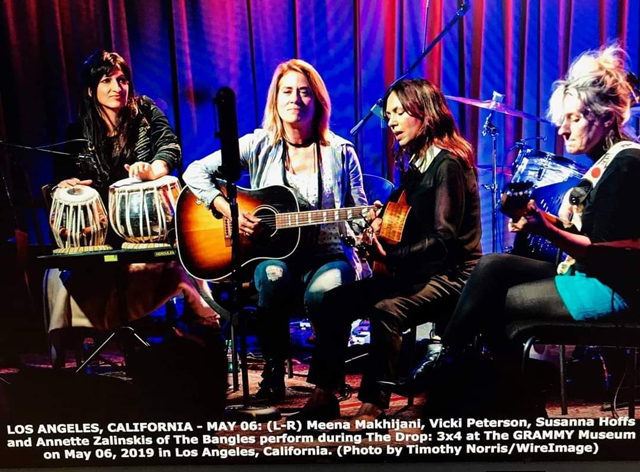
This is indeed an admirable place where famous and not so famous entertainers are looked after and given comfort and caring in their sunset years – it would be something commendable that the film industry in India could emulate since so many noted and unknown actors, technicians and crew, especially extras, often lead such difficult final years, forgotten and in financial straits.
“The place has beautiful gardens which are such a gorgeous, healing place to be – not only that – these seniors have a community of people from their own industry whom they can relate to,” says Makhijani. The meals are provided for them which makes food once again a social activity for many of the residents who are alone and fending for themselves.
Meena Makhijani loves the show biz vibes as she herself has led a very multi-faceted career, with many roles in life. She first started out as a mechanical engineer before switching to a medical education.
Makhijani studied at UC Berkeley, majoring in mechanical engineering with a minor in South Asian studies. She worked for several years as a mechanical engineer for a medical device company in Silicon Valley before going to medical school at Nova Southeastern University in Florida. She did her residency in family medicine at Northridge Hospital before pursuing a fellowship in Geriatric Medicine at UCLA.
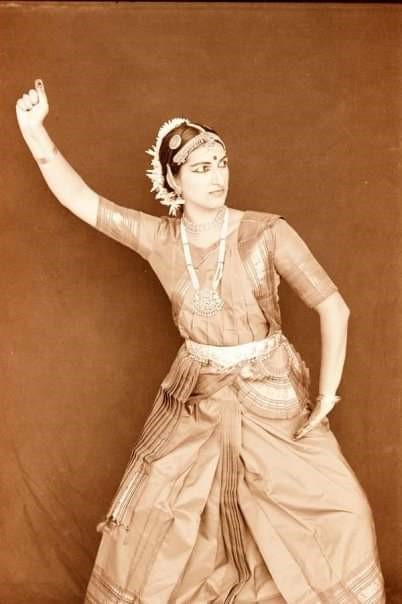 Growing up in an artistic family, she is also a bharatanatyam dancer and tabla player who has performed worldwide. She first learned music from her musician father who is a vocalist and a multi-instrumentalist. She recalls, “He was a prodigy who used to sing on All India Radio as a child. I’ve sung with him at many community events and music parties over the years, including a Sindhi Sammelan event in Los Angeles.” She’s also had the good fortune to learn the tabla from the Maestro Ustad Zakir Husain, and continues her studies with him to this day.
Growing up in an artistic family, she is also a bharatanatyam dancer and tabla player who has performed worldwide. She first learned music from her musician father who is a vocalist and a multi-instrumentalist. She recalls, “He was a prodigy who used to sing on All India Radio as a child. I’ve sung with him at many community events and music parties over the years, including a Sindhi Sammelan event in Los Angeles.” She’s also had the good fortune to learn the tabla from the Maestro Ustad Zakir Husain, and continues her studies with him to this day.
Makhijani has also been part of the band Asian Crisis for more than 20 years, playing tabla. She recalls, “We have performed at festivals throughout the country. Individually I have performed and recorded with musicians of all genres, including The Bangles. I also enjoy playing kirtan for meditations through my spiritual path, Self-Realization Fellowship.” A disciple of Paramahanda Yogananda, she says,” My spiritual practice is very important to me.”
Dance is a special part of her life, and she’s been studying Bharatanatyam since the age of six, with Guru Katherine Kunhiraman of Kalakshetra. Her aunt, Pushpa Shankar (nee Makhijani) was one of her teachers and is an emeritus faculty member of Kalakshetra, and a notable performer.
She says, “I perform regularly and enjoy adapting the traditional repertoire and my own choreography to music in Hindi to invite in a broader audience that may not have connected with this South Indian dance form before.”
With all her diverse dance and music experiences, has she ever thought of performing for her patients who all love the arts and have an entertainment background? She laughs wryly and admits she has not. She is there to make their lives better through medicine but certainly admires their talents and their spirit of giving back: she muses how fame is fleeting and many of them have had careers in the limelight and then moved out from the arc lights to anonymity.
“For years they might have a successful show and they’re doing great and making a ton of money, and then it’s done and they don’t get anything for years and people forget who they are,” she says turning philosophical. “And yet I find they all have very positive attitudes for the most part. And that’s something I really appreciate and learn from. Their entire goal in life has been to entertain people. It’s something very unique and makes them a little more positive about life. They always look at other people and think how they can impact them.”
On the Wasserman Campus, there is a production studio and a full theater – and it is here, Meena Makhijani says, that the residents continue to perform and create joyous entertainment for their neighbors. Yes, there may be ups and downs in life, dark days and failures – but the show must go on, often with spirit and a smile.
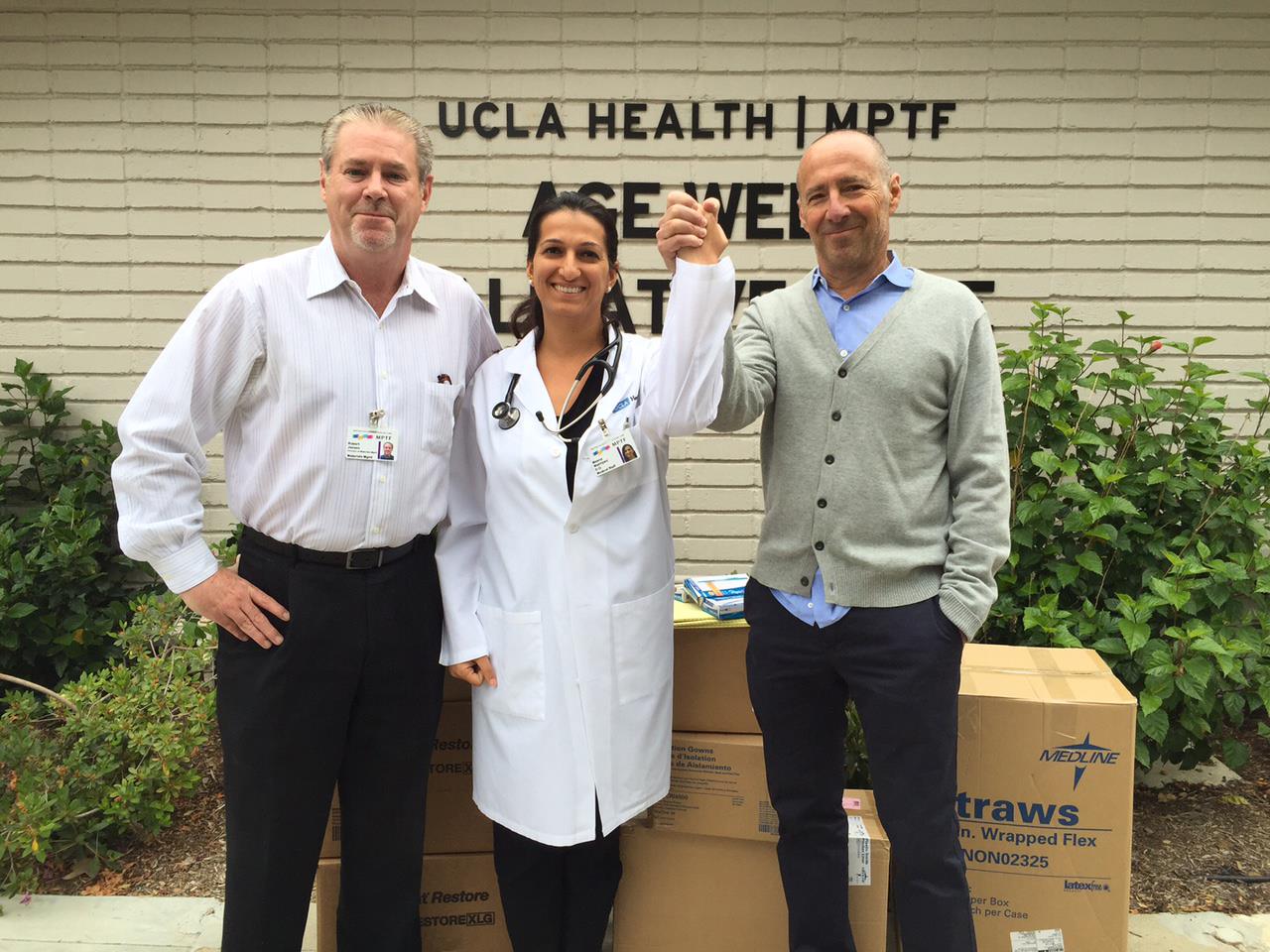
Dr. Meena Makhijani, a frontline worker remembers April 2020:
“For those who think COVID is a lie, and those who think stay at home orders are overblown – trust me, I wish that were the case. I wish it were a lie when my elderly patient in the nursing home struggled to breathe, looked for my eyes behind the goggles, and says “I am dying. I always thought I would die peacefully one day. Now I am struggling to try to live.” I just held her hand, feeling devastated that her family can’t be there with her. Another patient so ill, just kept saying “I don’t feel good” while I felt helpless that there is no magic pill I could give her. I patted her shoulder as I was leaving, and she whispered “come back…that felt good.” I had tears in my eyes as I stayed and rubbed her back, doing the only thing I could to make her feel better.
In my more than 10 years as a doctor, I have seen a lot of death. However, I have never seen people suffer like this though in their final days. The worst is how they suffer alone.
__________________
Courtesy: Lassi With Lavina